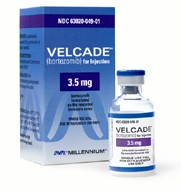“…including 50 human studies involving 8,521 patients, 5,081 of whom were given nutrients, have consistently shown…”
In all my experience as a multiple myeloma survivor and MM cancer coach talking to patients, survivors and caregivers, the question asked most often is if antioxidants interfere with chemotherapy. Clients ask me this despite my own multiple myeloma experience and they ask me this despite the dozens of studies I include with my recommendation of evidence-based, anti-cancer supplements.

My own personal experience during my active therapies has shown me how difficult it is to do anything, take any therapy, that is outside of what your oncologist prescribes. Therefore I have always relied on research- studies, for example, citing an antioxidant’s ability to enhance the efficacy of a standard chemotherapy drug.
My point is that it is the research that guides the cancer patient. I’ve been supplementing with curcumin since 2006. A host of studies cite this nutritional antioxidant to be anti many cancers, including my own (multiple myeloma).
To Learn More about antioxidants and cancer therapy- click now
I am both a multiple myeloma survivor and MM cancer coach. Please scroll down the page, post a question or comment and I will reply to you ASAP.
Thank you,
David Emerson
- Multiple Myeloma Survivor
- MM Cancer Coach
- Director PeopleBeatingCancer
Recommended Reading:
“Since the 1970s, 280 peer-reviewed in vitro and in vivo studies, including 50 human studies involving 8,521 patients, 5,081 of whom were given nutrients, have consistently shown that non-prescription antioxidants and other nutrients do not interfere with therapeutic modalities for cancer.
Furthermore, they enhance the killing of therapeutic modalities for cancer, decrease their side effects, and protect normal tissue. In 15 human studies, 3,738 patients who took non-prescription antioxidants and other nutrients actually had increased survival.”
This article was based on a study performed by Dr. Keith Block and his colleagues.
Keith I. Block, M.D., is the Director of Integrative Medical Education at the University of Illinois College of Medicine; Medical Director of the Block Center for Integrative Cancer Treatment in Evanston, Illinois; and editor-in-chief of the peer-reviewed journal Integrative Cancer Therapies.
Despite lingering beliefs to the contrary, recently examined data strongly indicate that for most cancer patients, using antioxidant supplements during chemotherapy is not only safe, it often enhances its effectiveness. Researchers from the University of Illinois at Chicago and the Institute for Integrative Cancer Research and Education have published a review that may have you rethinking your opinions about this controversial topic.
“There’s a lot of confusion surrounding this issue, and the advice coming out of many medical institutions is based on the belief that antioxidants may interfere with the chemotherapeutic effect on cancer tissue,” says lead author Keith I. Block, MD. “The question has been, Do antioxidants protect healthy tissue, or do they protect cancer tissues from effects of chemotherapy?”
After examining the literature from 845 studies of the simultaneous use of antioxidants and chemotherapy, the team found that 19 studies met the study design criteria to include in the review – all randomized controlled clinical trials, which yield the most scientifically sound data. A total of 1,554 patients with a wide variety of cancers (most advanced or relapsed cases) were evaluated. The studies examined the impact on 17 different chemotherapy drugs when they were used in conjunction with one or more of the following antioxidant supplements: * Glutathione * Melatonin * Vitamin A * Antioxidant mixture * Vitamin C * N-acetylcysteine * Vitamin E * Ellagic acid What the team found, Block says, was “solid and consistent data showing that antioxidants did not interfere with chemotherapeutic effects – and in fact mitigated cancer treatment toxicity – in most patients.” Here are just a few examples of their findings: *
Thirty-one percent of patients who used vitamin E supplements experienced neurotoxicity during treatment, compared to 86 percent of the control group. Patients had malignant cancers that included lung, head and neck, ovarian, and testicular. *
Glutathione use during chemotherapy resulted in significantly reduced neurotoxicity – and significantly improved tumor response and survival rates – among patients suffering from cancers that included ovarian, colorectal, and gastric. * A number of studies showed that patients who used melatonin supplements had consistently better chemotherapeutic responses, significantly fewer side effects, and significantly higher survival rates overall compared to patients who did not use melatonin. Cancers included in these data include lung, colorectal, and breast. *
In one study, metastatic breast cancer patients who used vitamin A supplements had more than double the treatment response rates of patients in the control group – and 38 percent experienced complete tumor shrinkage. In another study, 43-month survival rates among post-menopausal women was 78 percent, compared to 19 percent among women who did not take vitamin A supplements. Shrinking tumors and lengthening lives is of course what cancer treatment is all about, but don’t underestimate the importance of reducing side effects. After all, fewer ill effects mean fewer patients forego their prescribed chemotherapy regimens….”
APPIP ERROR: amazonproducts[
AccessDeniedAwsUsers|The Access Key Id AKIAJAJ37JVNL7OUU4CA is not enabled for accessing this version of Product Advertising API. Please migrate your credentials as referred here https://webservices.amazon.com/paapi5/documentation/migrating-your-product-advertising-api-account-from-your-aws-account.html.
]




